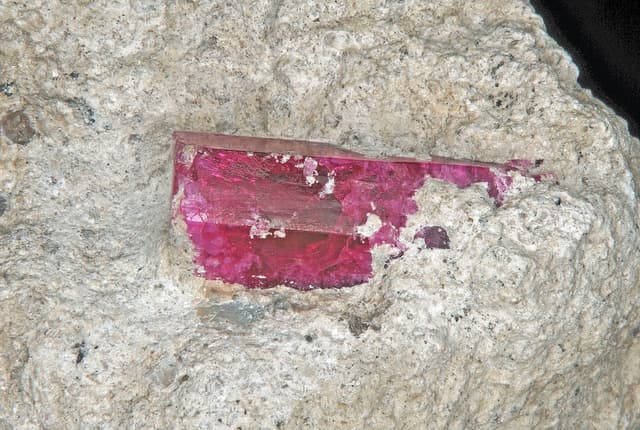Impurity Ions and Gemstone Colors
How do gems likes rubies and red beryls get their red color? Learn the role impurity ions play in the coloration of these and other gemstones.
3 Minute Read
The resulting color from an impurity in a mineral depends on the following factors.
- The type of impurity ion.
- The valence state of the impurity ion.
- The concentration of the impurity ion.
- The strength and symmetry of the crystal field on the impurity ion at the site at which it resides in the crystal. (This is determined by mineral type).
To explain this, I’ll use sapphire and ruby as my first gemstone examples. Chromium in corundum causes pink or red coloration.
Impurity Ions and Ruby and Sapphire Color
Just aluminum (Al) and oxygen (O) comprise pure corundum. The chemical formula, Al2O3, gives their relative amounts. Pure corundum doesn’t absorb any light from the far ultraviolet to the mid-infrared range. Thus, it’s absolutely colorless.
Now, chromium is a metal. However, when a chromium atom takes part in making a chemical compound, it loses electrons and becomes an ion. In the case of chromium in aluminum oxide, it loses three electrons, so we say it’s trivalent. It has a valence of +3 (Cr3+).
The trivalent chromium impurity substitutes for the trivalent aluminum of corundum. The addition of…
Dr. John Emmett
Dr. John Emmett is one of the world's foremost authorities on the heat treatment, physics, and chemistry of corundum. He is a former associate director of Lawrence Livermore National Laboratory and a co-founder of Crystal Chemistry, which is involved with heat treatment of gemstones.
Related Articles
Fossilized Organisms
Gemstones and Refraction Liquids
HPHT Diamond Treatments
Aquamarine Sources
Never Stop Learning
When you join the IGS community, you get trusted diamond & gemstone information when you need it.
Get Gemology Insights
Get started with the International Gem Society’s free guide to gemstone identification. Join our weekly newsletter & get a free copy of the Gem ID Checklist!
